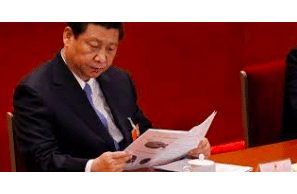Here’s the the introduction to the letter / document sent to Beijing by the EU
REQUEST FOR INFORMATION PURSUANT TO ARTICLE 63.3 OF THE TRIPS AGREEMENT
COMMUNICATION FROM THE EUROPEAN UNION TO CHINA
- The European Union would like to note that it welcomes and appreciates China’s ongoing efforts to strengthen its intellectual property rights system and its willingness to inform Members about its domestic developments. The European Union has for over ten years supported China’s efforts through the IP Key project and remains committed to continue cooperating in the future to mutual benefit on further improvements.
- In the interest of further transparency the European Union would like to request some information regarding a number of recent judicial decisions and regulations relating to patents. The European Union has noted that in four court cases decisions were taken relating to application for and enforcement of injunctions in relation to standard essential patents. Some of these decisions also contain measures relating to initiating court procedures on licence questions and royalty rates. These decisions appear to give a new interpretation to existing laws and regulations, and also have led to new regulations being proclaimed. Further detail on these measures is given below. In the annex are questions for clarification the European Union would like to ask China on these measures. This is a request pursuant to Article 63.3 of the Agreement on Trade-Related Aspects of Intellectual Property Rights (“TRIPS Agreement”).
- The European Union noted two cases in the Supreme People’s Court report on 2020 landmark decisions:[1] the first case, Conversant v Huawei, was reported as China’s first decision putting in place a so called “anti-suit injunction” and the first for setting daily fines.[2] The decision is stated as barring the holder of a European patent from enforcing a court decision of a Member State of the European Union relating to that patent. That decision reportedly addressed litigation relating to standard essential patents in numerous WTO Members. The decision is put forward as a model for China’s approach to anti-suit injunctions and daily fines of rightholders. The European Union would like to understand better this decision and the underlying approach.
- The European Union also noted the Supreme People’s Court qualified the Conversant v Huawei case as a “typical case” (????)[3] and published “adjudication guidelines” based on the case.[4] Further clarification of the impact of that qualification and the status of these guidelines would be welcome.
[1] Published on 22 April 2021. http://www.court.gov.cn/zixun-xiangqing-297991.html#. Consulted on 10 May 2021. 2020?????10????????50?????????, ?????????.
[2] Conversant v Huawei – Supreme People’s Court Huawei Technologies Co., Ltd., Huawei Terminal Co., Ltd., Huawei Software Technology Co., Ltd. and Conversant Wireless Licensing Co., Ltd. on confirmation of not infringing patent rights and settling a series of disputes on standard-essential patent licensing [Supreme People’s Court (2019) Supreme People’s Court 732, 733 , No. 734 Civil Ruling) ??????????????????????????????????????????????????????????????????????2019???????732?733?734?????????
[3] Supreme People’s Court annual report on 2020 presented the Conversant Huawei case as a “typical case” (????). Published on 26 February 2021 on http://www.court.gov.cn/zixun-xiangqing-298771.html#. Consulted on 10 May 2021. ?????????????????2020?????????
[4]Supreme People’s Court “adjudication guidelines” Published 26 February 2021 on http://www.court.gov.cn/zixun-xiangqing-288131.html. Consulted on 10 May 2021. ?????????????????2020).
The full document
W682 (1)



